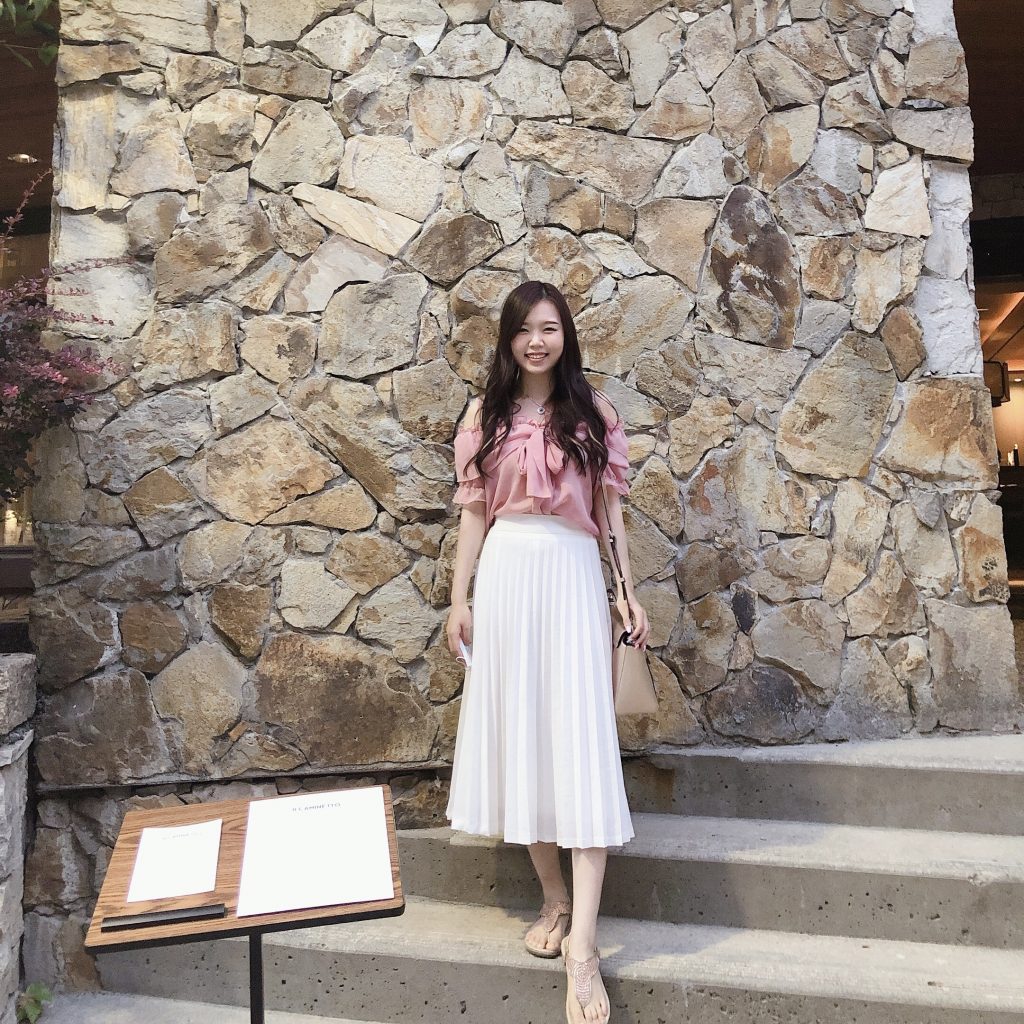This year, the 2020 “Chinese Bridge” Mandarin Speech Contest took place online with the theme of “one world, one family”. Korean-Canadian fourth-year student Laura Lee was chosen to represent British Columbia in this global competition. Laura took her first Mandarin class at UBC, and is now majoring in Chinese Language and Culture, as well as working as a research assistant for UBC Asian Studies. In this interview, she shares her unique experience learning Mandarin as a third language, talks about how she has used Mandarin to form connections to her personal dance journey and the larger community around her, and shares her future goals of working as a teacher and translator. You can watch her video for the Speech Contest here .

What made you want to start learning Mandarin?
I remember it was during my high school years when I first started to watch Chinese movies and listen to Chinese pop music. At first glance, watching movies and listening to music may sound like a typical hobby. But the more exposure I received to Chinese culture, the more I became intrigued by the beauty of the language. From the tones and pitches to the beautiful and mysterious-looking character strokes, every bit of the language began to fascinate me and gradually motivated me to actually start learning it. Coming into university, I took my very first Mandarin class ever with barely any experience and here I am now, proudly majoring in Chinese Language and Culture!
What was your experience like participating in the Chinese Bridge Mandarin
Speech Contest?
This was my first time participating in a global speech contest, in a foreign language nonetheless! This contest was one of the most rewarding and humbling experiences that helped me to reflect on my progress and growth of learning Mandarin. Watching other fellow contestants’ videos from all over the world coming from various backgrounds truly inspired me, and I felt honoured that I was able to partake in this prestigious contest with them. At first, I had my worries, since this was the first time that the Chinese Bridge Mandarin Speech Contest took place on a completely online platform and I didn’t know what to expect. My amazing professors and TAs of the Chinese Language Program were extremely helpful in turning this into such a smooth and enjoyable learning process. I am beyond grateful for all their professional guidance and hard work, so HUGE thank you to them!
Why did you decide to focus on dance in your video for the Speech Contest?
The theme for this year’s speech contest was “天下一家” (One World, One Family), so I wanted to share with others what that means to me, through my own unique dance experience — that dance is a globally popular art form which ties in different cultures and backgrounds of people all over the world. To me, dance has always given me a sense of belonging in a community and it is a way of embracing and learning various cultures, including my own — it was a way of expressing my emotions and feelings through my body when words were insufficient. I wanted to incorporate that part of me into the video to portray how learning Mandarin and Chinese pop culture has had an influence on my dancing life as well.
How has learning Mandarin influenced your life?
Mandarin is my third language, and I have gained extensive knowledge both academically and in my daily life through this language. In my first year of learning Mandarin, I was only able to greet someone in Mandarin, count to a certain number, and maybe wish someone a happy birthday. After finishing my last Mandarin course at UBC last year, I’ve gained confidence in my abilities to communicate with other native Mandarin speakers, I’ve become more open-minded as a student, and I’ve even had the opportunity to participate in a global speech contest. There were several times when I was working as a server where I was the only one able to communicate with Chinese customers and help them with their orders. Something as little as this made me reflect on how far I’ve come in my Mandarin learning progress, and made me realize that Mandarin is a valuable asset in broadening social connections in various working environments.
What are your future plans for your Mandarin learning journey?
As I’ve been working as a research assistant in the UBC Asian Studies department, I’ve been doing a lot of research work on Korean-Chinese manuscripts, Korean translations of Classical Chinese, and transcriptions of premodern vernacular Korean narratives. This research work has inspired me to continue using all my language skills, including Mandarin, to its fullest potential so that I can share my passion and love of languages with others. I have a lot of experience and passion for working with children as well, so one of my goals is to teach Chinese to elementary students in Korea or become a Korean-Chinese/English-Chinese interpreter and translator. Ideally, I would be in Beijing at this time as an exchange student, but instead I was given the opportunity to participate in the Chinese Bridge Mandarin Speech Contest this year, which has been immensely helpful in putting my Mandarin skills into real-life practice. Nevertheless, I still hope to visit China in the future to continue pursuing my studies in Mandarin and enhance my personal and intellectual growth. In other words, I plan on keeping my options and career pathways open because like I said, this is just the beginning to my Mandarin learning journey!



